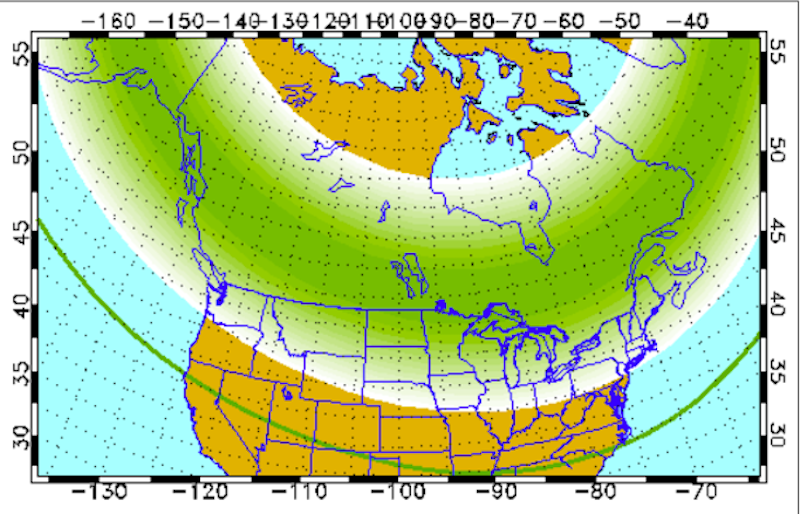Metro Vancouverites hoping to observe dancing lights in the heavens over the weekend may want to keep their eyes on a handy online tool.
Environment Canada calls for bright sunshine and clear skies all weekend and that's a boon for locals hoping to view the aurora borealis.
The northern lights are expected to be highly active over most of Canada on Saturday (Oct. 30) night and on Halloween, albeit somewhat less active on the spooky day.
But the celestial event, much like any weather forecast, isn't guaranteed.
That being said, the forecast includes a high likelihood for a spectacular display (and maybe a spooktacular one on Halloween, too).
According to the University of Alaska Fairbanks (UAF), auroral activity will be highly active on Saturday, with displays possible overhead from "Inuvik, Yellowknife, Rankin and Iqaluit, to Portland OR, Cheyenne, Lincoln, Springfield, and New York City, and visible low on the horizon as far south as Carson City, Oklahoma City, and Raleigh."
There's also a possibility that locals will see the vibrant demonstration on All Hallows' Eve, but the display isn't expected to be as strong in Vancouver.
You can visit the university's online aurora monitor for a daily forecast of "geomagnetic activity for the next three days provided in three-hour intervals."
The map shows what regions the aurora's green glow will likely reach, as well as another area where there is less of a possibility. Additionally, there is a brief description below the map of the aurora activity on that particular day. You can switch to other days to see the forecast, too.
During average activity levels, auroral displays will be overhead at high northern or southern latitudes. Places like Fairbanks, Alaska; Dawson City, Yukon; Yellowknife, NWT; Gillam, Manitoba; the southern tip of Greenland; Reykjavik, Iceland; Tromsø, Norway; and the northern coast of Siberia all offer a good chance to view the aurora overhead.
UAF notes that "fairly strong auroral activity is required for aurora viewing" in Vancouver.
-
What is the best time of night to see aurora?
UAF recommends that you plan to be out for three or four hours around midnight. That said, the dancing lights are active throughout the night. Since clear sky and darkness are both essential to see aurora, the best time is dictated by the weather and by the sunrise and sunset times. The moon is also very bright and can make it more difficult to view the aurora, so lunar cycles should be taken into account.



